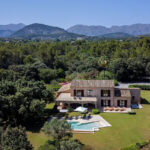Phuket – FAQ for Buying Property
How much do properties cost in Phuket?
Property prices in Phuket vary depending on property type, location, and view. Entry-level condominiums can be purchased for as little as 2 million THB, particularly in inland or less developed areas.
For landed property, buyers can typically enter the villa or housing market from around 5 to 6 million THB. Modest garden-view villas with private pools are generally priced from 10 million THB, especially in residential areas such as Rawai, Nai Harn, or Pasak.
Seaview villas are significantly more expensive, with most starting from around 30 million THB. Premium locations such as Kamala, Surin, and Layan often command higher price points.
For a full breakdown of market trends, buyer activity, and current price ranges, see our Phuket Property Market Overview.
What types of property are available in Phuket?
Phuket has the most extensive range of available property across all types, offering options to suit nearly every kind of buyer. While destinations like Koh Samui also offer villas, houses, apartments, and some freehold condominiums, Phuket stands out for the scale and consistency of its supply, particularly in higher-density areas and the luxury segment.
As of July 2025, Koh Samui has just one fully branded development offering residential stock for sale, The Estates by Four Seasons, whereas Phuket has multiple branded residences across a variety of locations and price points.
This depth is one of the core strengths of the Phuket property market. Buyers can choose from compact condominiums starting at just a few million baht, all the way up to ultra-luxury sea view villas priced in excess of 700 million baht.
For current listings and full market coverage, see our Phuket Property for Sale page.
Where are the best areas to buy property in Phuket?
The answer depends on the reasons why you want to buy. Phuket offers a wide range of property options across the island, and the optimal area will vary depending on whether you're looking for coastal living, a sea view home, gated privacy, family convenience, short- or long-term rental appeal, or simply greater value for money in terms of space, privacy, and price per square metre.
The most established luxury zones are still located along the west coast. Kamala, Surin, Bang Tao, and Layan remain the most in-demand areas for sea view villas and high-end residences, while nearby neighbourhoods such as Laem Son, Cape Yamu, and the Surin headlands also attract premium buyers. Kamala’s Millionaire’s Mile continues to anchor Phuket’s ultra-luxury segment.
However, the market has evolved. Many buyers today are choosing inland areas like Sri Sunthorn, Bang Jo, and Thep Krasattri, which offer larger plots, greater privacy, and proximity to international schools and wellness hubs. These locations are increasingly popular with families, long-stay residents, and lifestyle buyers who want more space while staying within easy reach of the beach.
For a full breakdown of trends and locations, see our Phuket Property Market Overview.
Can foreigners own a villa in Phuket?
Yes, there are several ways for foreigners to legally own a villa in Phuket, depending on how the ownership is structured.
When you see a villa advertised for sale in Phuket, it will typically be described as either leasehold or freehold. In both cases, this refers specifically to the land. Regardless of the land tenure, the villa or house itself, meaning the physical structure, can be registered in a foreigner’s name. This is documented via the blue book (Tabien Baan), which is the official government-issued record of residence.
The land beneath the villa is a different matter. There are two common structures used for foreigners to acquire the land: leasehold and Thai company freehold. Leasehold land can be secured for up to 30 years per term. For freehold land, a properly structured Thai company may be used, but only if it operates as a legitimate, profit-making business with real commercial activity. This structure must be set up and maintained in full legal compliance.
A third, less common option involves villas located within registered condominium projects. In these cases, the villa is classified as a condominium unit, which allows for direct foreign freehold ownership, similar to a condo apartment. Supply in this category is limited, but it does offer a clean legal pathway for foreign buyers seeking freehold land use without company involvement.
For a full breakdown of these options, see our Ownership Structures in Thailand page.
How are luxury villas in Phuket typically owned?
A vast majority of luxury standalone villas in Phuket are owned by foreign investors through corporate holding structures. To enhance security, leases are usually issued by the company and registered in the foreign buyer's name. At higher price points, offshore companies are often used to replace the foreign director for tax efficiency purposes.
When examining villas within resorts, it’s worth noting that resorts are better positioned to offer more secure lease renewals. As a result, a significant percentage of these villas are purchased with renewable lease tenure. Examples include developments like Andara and Trisara.
What are the Phuket building regulations for different zones?
Phuket has strict zoning laws that limit building height, density, and land use depending on distance from the shore, altitude, gradient, and title type. Major changes in 2024 allowed some hillside development above 80 metres. Full summary here: Phuket Building Regulations Explained.


